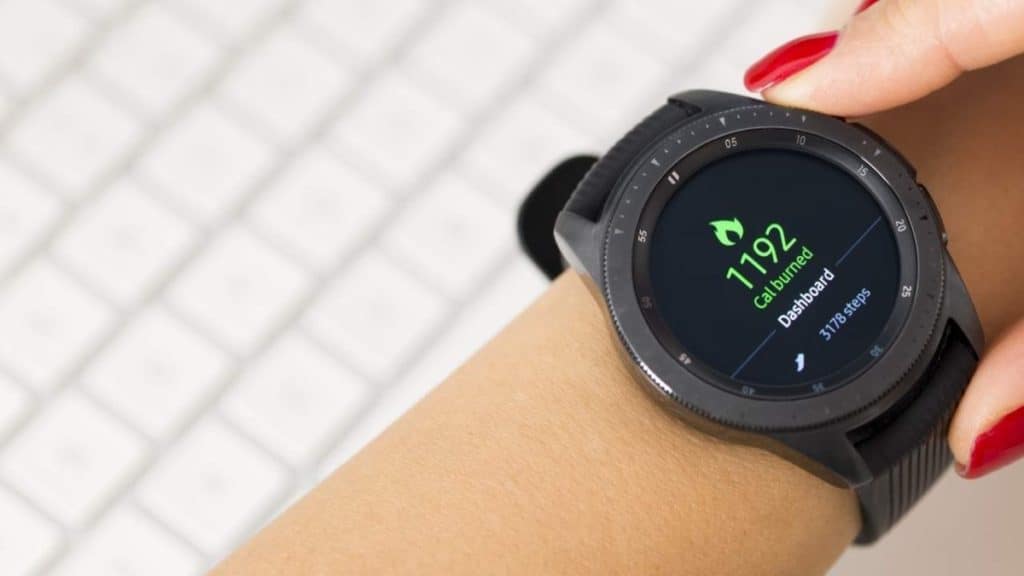
Understanding your 3km run time for your age is great because the 3km is one of the most popular running distances. How long does it take to run 3km and how does your fastest 3km run compare to others of similar age and gender?
For a recreational runner, the average time it takes to run 3km is between 20 – 25 minutes. For a more experienced runner, the average time it takes to run 3km is around 15 – 20 minutes. And for a professional runner, the average time it takes to run 3km is under 10 minutes. The world record for a 3km run is 7:20, set by Daniel Komen of Kenya.
Table of Contents
Average Time to Run 3km
The average time to run 3km is dependent on several factors, including sex, age, and weight. However, even if your weight, age, or sex does mean you will run 3km slightly slower than others, you can still expect to see great results in terms of burning calories.
This article will cover how many calories you will burn running 3km at 4 different speeds for 3 different weights. As well as this it will cover the differences between male and female run times as well as discuss how often you should run 3km
Average Time To Run 3km by Age (Female)

The average time to run 3km for running do vary between males and females. According to Healthline, this can be because males tend to have more muscle mass due to higher levels of testosterone meaning they have more fast-twitch muscles in the leg which can result in a faster overall speed. Its always best to find out your 1km average pace then you can calculate your 3km better.
Below is a table showing the average speed for females to run 3km for 12 different age groups.
| Age | Beginner | Intermediate | Advanced |
| 15-20 | 22:00 | 16:18 | 12:42 |
| 20-25 | 22:15 | 13:45 | 12:00 |
| 25-30 | 22:18 | 13:54 | 12:12 |
| 30-35 | 22:24 | 14:06 | 12:24 |
| 35-40 | 22:51 | 14:36 | 12:42 |
| 40-45 | 23:06 | 14:57 | 13:21 |
| 45-50 | 23:12 | 15:09 | 13:45 |
| 50-55 | 23:15 | 15:39 | 14:03 |
| 55-60 | 25:36 | 16:45 | 14:45 |
| 60-65 | 27:06 | 18:03 | 15:09 |
💡Struggling with stubborn weight that won’t budge? Tired of yo-yo diets and empty promises? Say goodbye to past failures and hello to guaranteed success with our fail-proof, personalised calorie plans! Uncover scientifically-backed strategies that make weight loss effortless, helping you shed up to 24 pounds in just 12 weeks. This isn’t a fad; it’s a lifestyle transformation. Don’t miss out—your journey to a slimmer, more confident you is just one click away!

Average Time To Run 3km by Age (Male)
In general, men are typically faster at running 3km than females. There are many reasons why males are faster at running 3km than females. One of the biggest reasons is because males have more muscle mass than females.
This extra muscle mass allows them to generate more power and run an average 3km faster. Another reason is that males have a higher percentage of fast-twitch muscle fibers, which also helps them run faster.
Females tend to have more slow-twitch muscle fibers, which are better for endurance activities like long-distance running. However, this does not mean that females cannot run fast. Many of the world’s fastest runners are female. It just takes a little more training and effort for most females to reach their full potential as a runner.
| Age | Beginner | Intermediate | Advanced |
| 15-20 | 20:51 | 14:24 | 12:06 |
| 20-25 | 17:45 | 12:36 | 09:57 |
| 25-30 | 17:54 | 11:48 | 10:12 |
| 30-35 | 18:03 | 11:54 | 10:18 |
| 35-40 | 18:15 | 11:57 | 10:33 |
| 40-45 | 19:36 | 12:48 | 11:24 |
| 45-50 | 20:18 | 13:06 | 11:45 |
| 50-55 | 21:15 | 14:45 | 12:12 |
| 55-60 | 22:12 | 15:24 | 13:45 |
| 60-65 | 24:09 | 16:21 | 14:36 |
Other Running Distances You Might Find Interesting To Know
Check out my big running data analytics that contains every running distance by age and gender in a full comparison table for beginners and intermediates. You can compare your average running times against every distance in your age and ability group.

How Often Should I Run 3km?
Running 3km every day is a great way to improve fitness and lose weight. If you’re a complete beginner, it’s advised to run every other day to prevent injury and promote recovery. However, after a month or two of regular running, you can run 3km every day.
It’s crazy that running 3km just 3-4 times a week could improve your health and keep you sane. But, as long as it’s not too much for someone who has never run before, a beginner should stick to three or four runs per week so they can improve their average 3km time but don’t overdo themselves!
This way of living is also great when paired with eating healthy foods; some experts say those types of diets may help people lose weight even faster than normal.
If you are new to running you might be asking yourself how frequently you should run, certainly, you should run several days per week but it is not advised to run seven days a week. This goes for everyone but especially for beginners.
Instead of running every day make sure to vary your exercise with different activities to boost your fitness and provide better conditioning to make you a more well-balanced athlete. This will also reduce your risk of injury as running can become quite taxing on the ankles due to impact.

How Many Calories Will You Burn Running 3km?
On average, you burn between 210 and 300 calories running 3km non-stop. Nevertheless, this number will be higher or lower depending on your weight, speed, and terrain. If you weigh more, you will burn extra calories because it takes more energy to move your body. If you run on a hilly terrain, you will also burn additional calories because it is more challenging to run uphill.
| Weight | Calories Burned For 3km Run |
| 160lbs | 189 calories |
| 170lbs | 198 calories |
| 180lbs | 213 calories |
| 190lbs | 222 calories |
| 200lbs | 237 calories |
| 210lbs | 246 calories |
| 220lbs | 258 calories |
| 230lbs | 273 calories |
| 240lbs | 282 calories |
| 250lbs | 297 calories |
The calories you burn whilst running an average 3km can vary depending on different factors, such as how fast you are running 3km, and also your current weight. Harvard University has produced a report that estimates the number of calories you would burn running at 8 kph, 9.5 kph, 12 kph, and 16 kph for 3 different weight classes.
The rest of this section will break down how many calories you would lose at each given speed for each different weight class, 125 pounds, 155 pounds, and 185 pounds as there is a significant difference in calories burned between the different speeds and weight classes. For the full break down, read how many calories do you burn running 3 km.

Calories Burned Running 3km at 8 kph
If you weigh 125 pounds and run at 8 kph you can expect to burn 240 calories over 30 minutes which works out at 8 calories per minute. This means you will burn approximately 176 calories running 3 km at a pace of 8 kph.
If you weigh 155 pounds and run at 8 kph you can expect to burn 288 calories over 30 minutes which works out at 9.6 calories per minute. This means you will burn just over 211 calories running 3 km at a pace of 8 kph.
If you weigh 185 pounds and run at 8 kph you can expect to burn 336 calories over 30 minutes which works out at just over 11 calories per minute. This means you will burn just under 267 calories running 3 km at a pace of 8 kph.
Calories Burned Running 3km at 9.5 kph.
If you weigh 125 pounds and run at 9.5 kph you can expect to burn 495 calories over 30 minutes which works out at 16.5 calories per minute. This means you will burn approximately 313 calories running 3 km at a pace of 9.5 kph.
If you weigh 155 pounds and run at 9.5 kph you can expect to burn 360 calories over 30 minutes which works out at 12 calories per minute. This means you will burn approximately 228 calories running 3 km at a pace of 9.5 kph.
If you weigh 185 pounds and run at 9.5 kph you can expect to burn 420 calories over 30 minutes which works out at 14 calories per minute. This means you will burn just under 266 calories running 3 km at a pace of 9.5 kph.

Calories Burned Running 3km at 12 kph.
If you weigh 125 pounds and run at 12 kph you can expect to burn 375 calories over 30 minutes which works out at 12.5 calories per minute. This means you will burn approximately 187.5 calories running 3 km at a pace of 12 kph.
If you weigh 155 pounds and run at 12 kph you can expect to burn 450 calories over 30 minutes which works out at 15 calories per minute. This means you will burn just over 225 calories running 3 km at a pace of 12 kph.
If you weigh 185 pounds and run at 12 kph you can expect to burn 525 calories over 30 minutes which works out at just over 17.5 calories per minute. This means you will burn just approximately 262.5 calories running 3 km at a pace of 12 kph.
Calories Burned Running 3km at 16 kph
If you weigh 125 pounds and run at 16 kph you can expect to burn 453 calories over 30 minutes which works out at just over 15 calories per minute. This means you will burn approximately 168 calories running 3 km at a pace of 16 kph.
If you weigh 155 pounds and run at 16 kph you can expect to burn 562 calories over 30 minutes which works out at 18.7 calories per minute. This means you will burn just over 208 calories running 3 km at a pace of 16 kph.
If you weigh 185 pounds and run at 16 kph you can expect to burn 671 calories over 30 minutes which works out at just over 22 calories per minute. This means you will burn just under 249 calories running 3 km at a pace of 16 kph.
Average Time to Run 3km Summary
Hopefully I’ve explained that the average 3km run time takes around 20-25 minutes for all ages and genders. But for a more accurate understanding of how long it takes to run 3km look at your average 3km run time by age.
you burn on average 300 calories, great for weight loss. The number of calories you burn during a 3k run varies depending on your current weight as well as the pace at which you run, but at any weight and speed, you can expect to see a decent number of calories burned even if you are a beginner and running somewhat slowly to start with.
There is a difference in running pace between men and women with men being faster on average over 3km but since 3km is a relatively short distance the time difference is negligible.
Whilst you may be excited to start running make sure not to overdo it and run every day of the week as this can increase the risk of injury. Instead, make sure to vary exercises to ensure you become a more well-rounded athlete.



